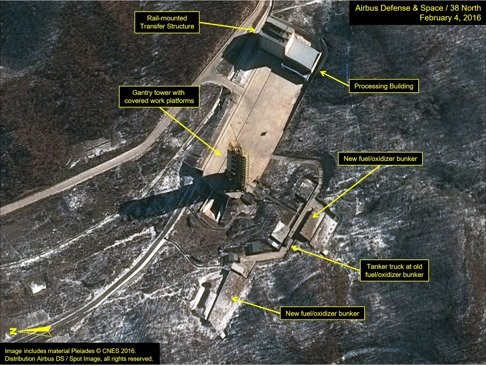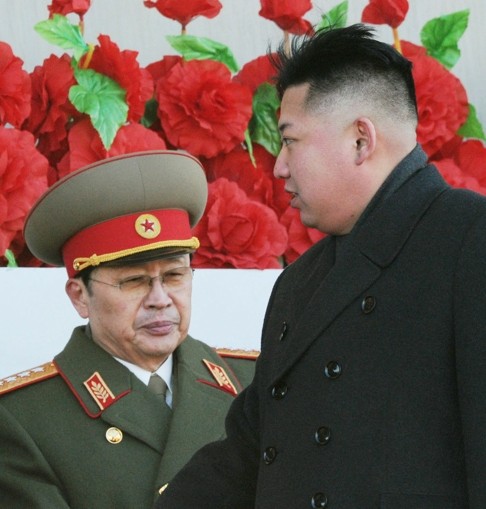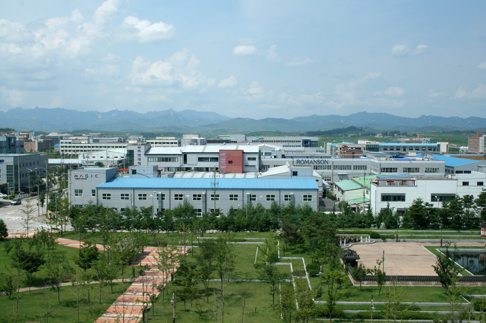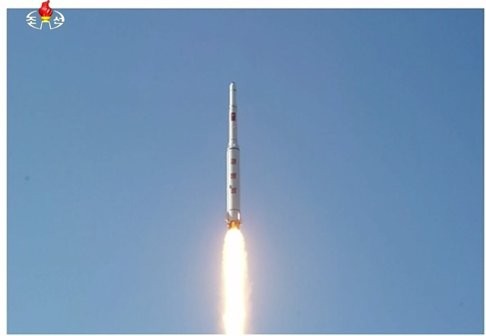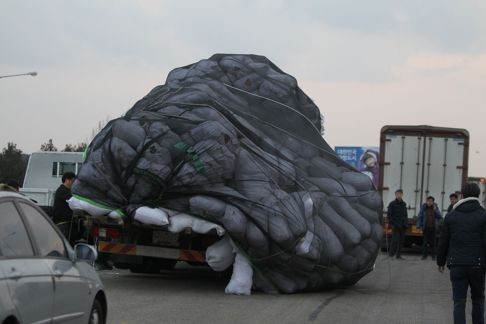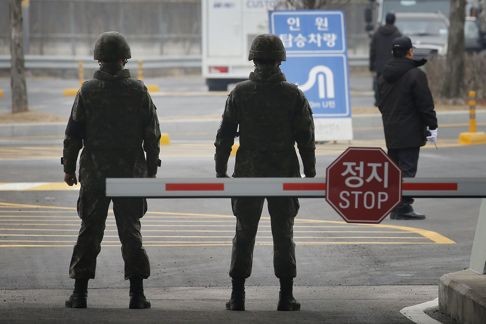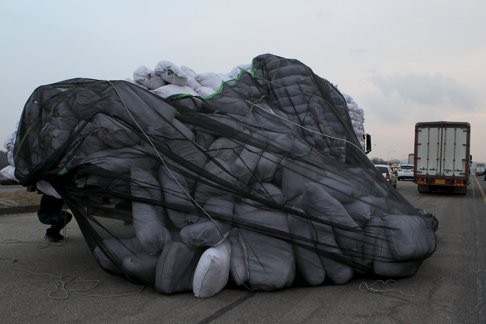90% of N. Korean population thought to be tied to markets in some form
[As Heard in North Korea]
Unification Media Group | 2016-01-29 10:56
"As Heard in North Korea" articles contain the content of Unification Media Group [UMG] radio broadcasts into North Korea. UMG is a consortium created by Radio Free Chosun [RFC] and Open Radio for North Korea [ONK], shortwave radio stations targeting North Korea; The Daily NK, an internet periodical reporting on all aspects of North Korea; and OTV, an NGO-based internet television channel.
Despite the deepening international isolation of North Korea, Kim Jong Un is increasingly opening up the country’s economy and tourism industry in hopes of securing more funds for his leadership. Kim Jong Un’s tacit approval of private business activities has resulted in the expansion of markets. Some suspect that Kim Jong Un is taking advantage of the budding elements of the market economy such as stall taxes to raise funds for his leadership. Over the past four years of his rule, the lives of average North Koreans are seen as having improved through the North’s various economic policies and here to tell us more about is Director Jeon Hyeon Jun from the Northeast Asia Peace and Cooperation Institute.
1. Rice prices and the exchange rate in the North remained relatively stable in 2015. Some attribute this to the market’s stabilization of supply and demand, and this has also led to a boom in the marketplace. What is your take on this?
It seems that more than 90 percent of North Koreans maintain their livelihood through the marketplace. Though there are general [official] markets in the North, the majority are unofficial markets through which many people earn money. As rations under Kim Jong Un’s regime cannot provide for them sufficiently, it appears market vitalization is being used as a means to resolve this problem.
Of course, the North Korean economy is not improving solely due to the pick-up in market activity. Factors such as natural resources and labor exports, tourism, and overseas restaurant operations have had an effect, but the basis of growth still comes from the markets.
Stable rice prices have always been an important foundation for growth. In the past, 1 kg of rice has risen up to 8,000 KPW, but currently, it is stable, hovering around 5,000. The official exchange rate is believed to be around 108 KPW to the dollar, or 8,400 KPW according to the black market rate.
2. So Kim Jong Un’s leadership does not actively regulate the marketplace and allows some degree of freedom. If you were to evaluate his overall policies toward the market?
Personally, I think his approach toward the markets is positive. North Korean marketplaces should quickly grow and introduce the capitalist mode of production, in order for it to receive recognition in the global community and improve the quality of its people’s lives. So I don’t view this trend of marketization in a negative light. But if these marketization policies are temporary and short-lived, I think that would be a problem.
These policies have, to some extent, resolved the problems that the people face in making ends meet. That’s why there would be huge implications if they start cracking down on markets or if they shut them down just because conditions have improved somewhat for people. There have been many instances in which the markets were shut down during Kim Jong Il’s time, because there were concerns things would get out of control and lead to unwanted rumors. I hope that’s not the case with Kim Jong Un.
3. Some say that Kim Jong Un is earning an enormous amount of capital through the marketplace. Government funds are secured through means such as market taxes and mobile phone sales. What do you think of this?
You can say that government funds are being secured through the markets. Market fees are collected based on the size of the stall, and the types of items sold. These taxes are no doubt added to the state coffers and used for state finances, but it is speculated that a portion of it goes to Kim Jong Un. North Korea is fundamentally a suryong [supreme leader] economy. Since the suryong has complete control over the nation’s channels of money, you can say that everything is owned by the state and by extension, the suryong.
But it’s not that all profits earned from the markets go to the leadership. This is because part of it is owned by individuals. This is why in the North, we now have people called donju [new affluent middle class] who have in essence become capitalists. These are the people who get to own some of the profits.
One illustration would be the mobile phone market, where it costs about 50 USD to import a handset from China, which is then sold for roughly 200-300 USD. The profits from this are pocketed by the North Korean government, but it is said to be split roughly by a 3:7 ratio: 30% goes to the vendor, and 70% goes to Office No. 39 under the Central Party, where it is used for leadership funds. Most is spent on the various projects that Kim Jong Un puts forward.
4. Some believe that this movement of marketization will help stabilize Kim Jong Un’s regime. What do you make of this?
Along with the stabilization of prices thanks to the boom in market activity, living standards have improved, so it seems this has helped quell some of the disgruntlement people had. North Korea promotes this improvement as an achievement of Kim Jong Un, so public support for the leader has remained somewhat steady. If you look at surveys on defectors, you’ll see that Kim Jong Un has about a 60% support rate. Of course, this figure is lower than that of Kim Il Sung or Kim Jong Il, but it’s still a very high approval rating, and it can be attributed to the policies that have helped stimulate market activity.
5. But there’s also the belief that the proliferation of markets will trigger a change in values among people. They say the ‘jangmadang [marketplace] generation’ value the markets more than the state, so their loyalty is getting weaker. What would you say to this?
A change in values will inevitably occur. During Kim Il Sung’s rule, people strongly believed that their livelihoods would be taken care of by the leader through state rations. As a result, they had strong loyalty towards the leader. On the other hand, after experiencing the Arduous March of the mid-1990s, as neither the Party nor the leader could provide for them, doubt began to spread. So recently, love and passion towards the family and self are becoming stronger than their devotion towards the leader, state and Party.
6. Along with these market-friendly policies, people are also saying consumption is improving. Particularly in Pyongyang, the increase of things such as apartments and cars has led many to believe that this is the effect of marketization. Could you please tell us about some of the changes that we’re seeing in people’s everyday lives?
It goes without saying that a boom in market activities will lead to a change in thoughts among the public. Individualism rather than collectivism and nationalism develops, and this also leads to a change in actions. According to existing rules, the sale of apartments or homes is not allowed since the property belongs to the state. Instead, the type of exchange in North Korea is essentially not for the right of ownership, but the right of usage. Yet the exchange for the right of usage itself is still in conflict with the practice and rules of socialism. While it used to be that one would be punished for this if caught, it has now become so commonplace that the state security and people’s safety officials just turn a blind eye to it.
Also, modes of transportation such as taxis in Pyongyang have increased. This shows that the movement of Pyongyang residents has become more active, and the need for long distance transportation has increased. As the markets become more active, jobs normally found in capitalist societies are emerging, and bureaucrats related to these changes are accepting more bribes as corruption becomes worse.
7. Though the quality of life for people has improved to some degree, unwanted side effects cannot go unnoticed. As the reach of the private economy expands, the planned economy has collapsed, the gap between the rich and the poor has grown, and other factors of instability have increased.
It is true that with the expansion of the private economy, there has been a collapse of the planned economy and the wealth disparity has increased. The top one percent’s earnings are 18 times more than the majority of the lower classes. The rate of factory operations has started to increase, and this is because wealthy donju are finding ways to cut corners and pay money to reopen those factories to pocket the profits.
While there are still food shortages, and many are stuck in absolute poverty, we can say that the very fact that the above events have become prominent indicates that the elements of production from capitalism are being introduced, making it not entirely a bad thing.
8. Lastly, it seems that Kim Jong Un will continuously look for ways to manage this marketization trend, given the side effects it can produce. What kind of measures do you think we might see in the future?
I think we might see a repeat of marketplace regulation and tolerance. In other words, on one hand he will overlook market activities so that it will improve people’s livelihoods, but if it swells to the point that it threatens the regime, he will likely immediately and ruthlessly control it. I think we’ll see a repetition of that.
Nonetheless, as seen in history, things continue to move forward. Ultimately I believe that North Korea will inevitably reach a point where it will have to officially introduce a market economy.
*Translated by Sean An






